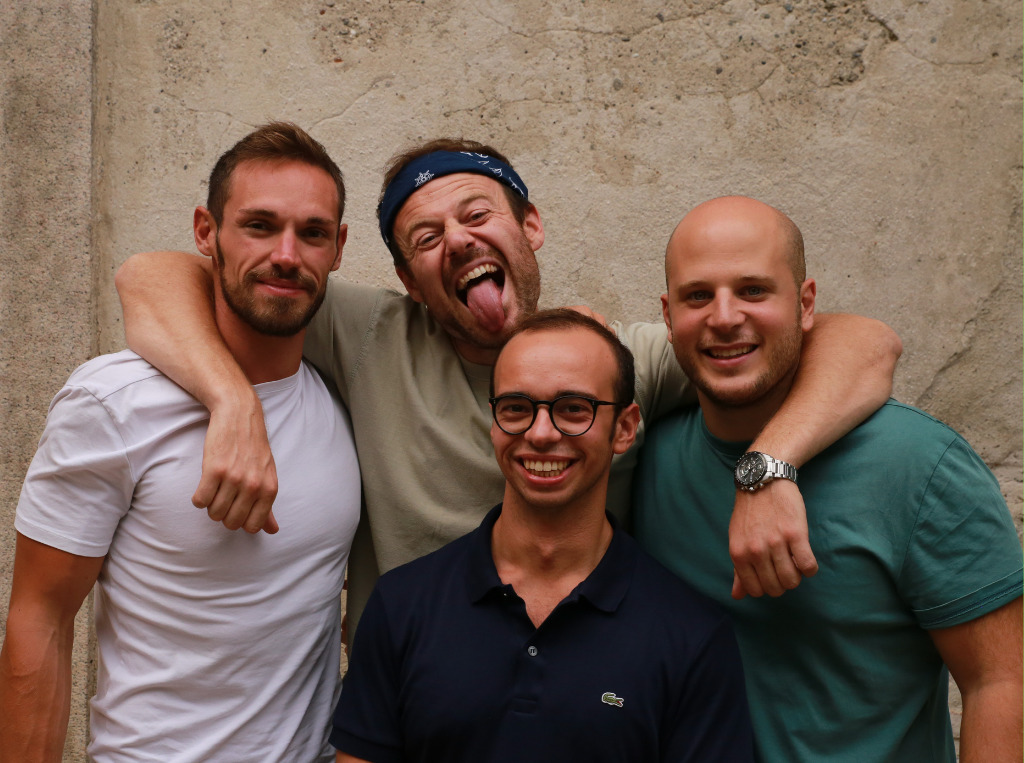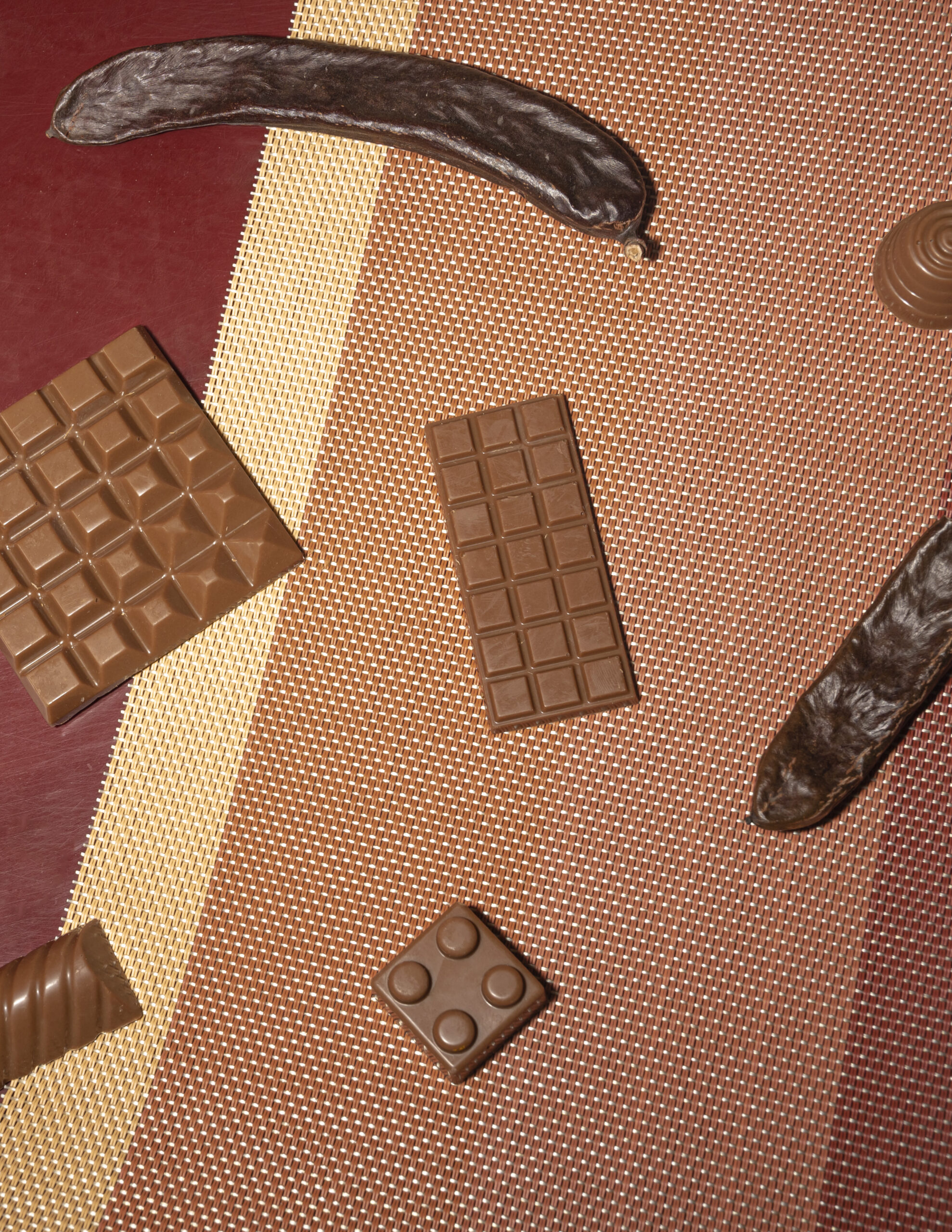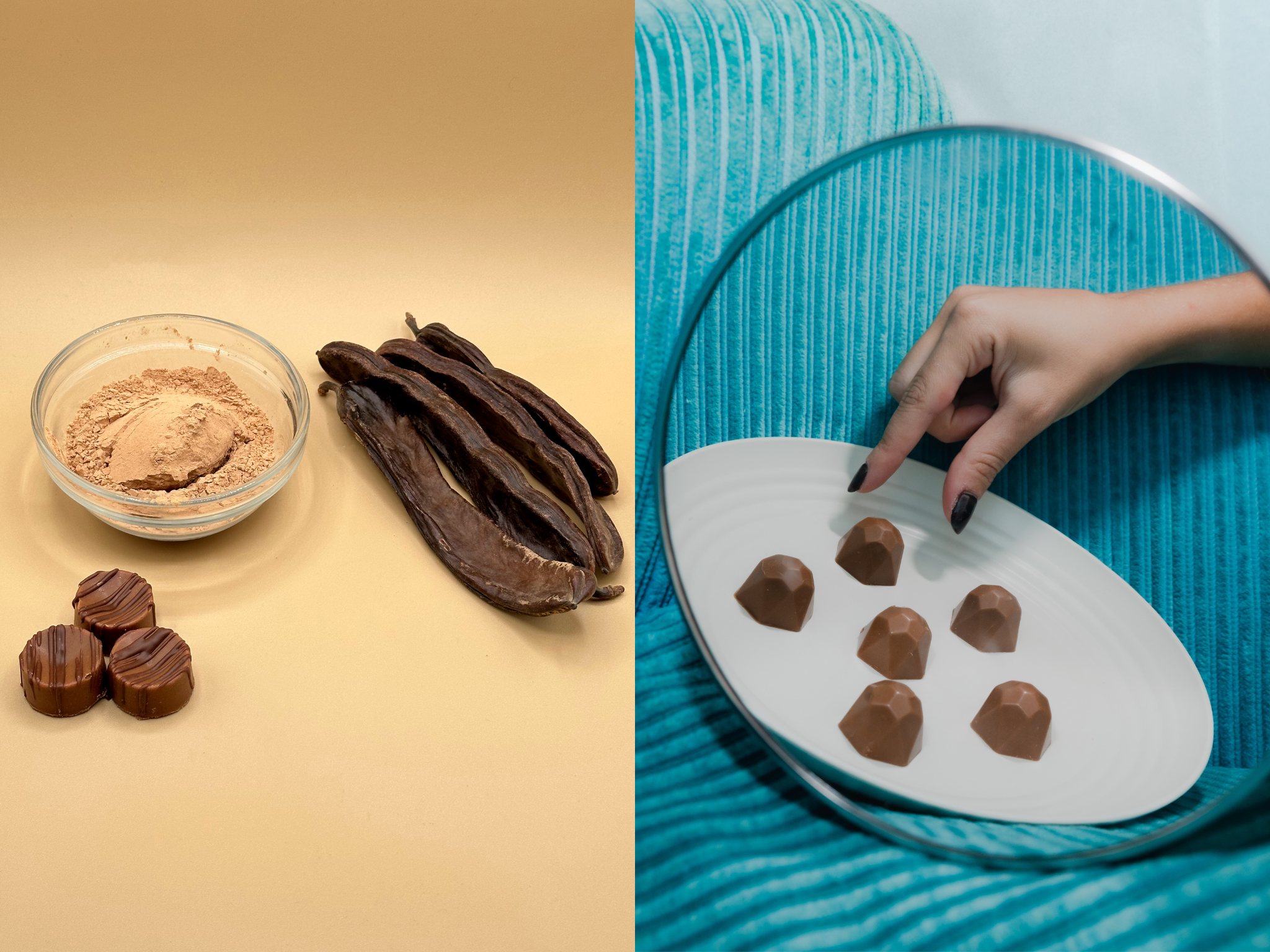Choruba & the Chocolate Factory: Italy’s Foreverland Bites Into €3.4M for New Cocoa-Free Chocolate Products
5 Mins Read
Cocoa-free chocolate maker Foreverland has raised €3.4M ($3.76M) in a seed funding round to open its first production facility for its carob-based Choruba alternative.
Puglia-based startup Foreverland has got investors’ tastebuds tangling with a €3.4M ($3.76M) seed round to scale up production and expand distribution for its carob-based chocolate alternatives.
The financing round included the likes of Grey Silo Ventures, Eatable Adventures, Kost Capital 2100 Ventures, Newland Syndicate, and Moonstone, among others.
The Italian company is among an expanding crop of cocoa-free chocolate producers looking to lower the environmental impact of the world’s favourite sweet treat. Foreverland’s product, which has been rebranded from Freecao to Choruba, is made from a base of carob and grains mixed with sugar and vegetable fats.
“These funds will primarily be used to set up our first production facility in Puglia, expand into new markets, and accelerate the development of new products featuring Choruba,” Giuseppe D’Alessandro, co-founder and CMO of the brand, told Green Queen. “We’ll also continue to invest in R&D, particularly to enhance the scalability and versatility of our ingredient, Choruba.”
In a joint statement, Grey Silo Ventures managing partner Giacomo Fanin and investment manager Matteo Leonardi said: “We spent over a year assessing the (alternative) chocolate sector in all aspects, and when we found out and started digging in Foreverland’s technology we knew that it could tick all the boxes to emerge as a category-defining business.”
Banking on carob’s sustainability credentials

Foreverland came out of stealth last year, built on the back of the vast corporate and food industry experience of D’Alessandro and his co-founders Massimo Sabatini, Riccardo Bottiroli and Massimo Brochetta. Since then, the startup has been releasing products in small batches – such as nutty Easter eggs, pralines and panettone – produced through a network of co-manufacturers.
But the cash infusion will enable it to open its own facility in Puglia, a region rich with carob trees, in January. It will have an initial capacity of 1,000 tonnes annually. “It’s designed with sustainability in mind, ensuring minimal environmental impact. We’re focused on our semi-finished products in drops or liquid,” said D’Alessandro.
The factory will also mark a new era for its cocoa-free chocolate, now called Choruba. “The decision to rebrand from Freecao to Choruba came in 2024 after we recognised the strong identity and connection we wanted to create around our ingredient’s Mediterranean roots,” he explained.
“The name ‘Choruba’ highlights our key ingredient, carob, and represents a futureproof alternative to chocolate with a new ingredient, combining sustainability with the indulgence people expect from traditional chocolate.”

Speaking of sustainability, that is at the core of this industry’s efforts. Dark chocolate is the second most polluting food (behind only beef), and has a higher land use change impact than all other foods. It’s also a major driver of tropical deforestation, with Ivory Coast (the largest producer of cocoa) losing 85% of forest cover in the last 65 years.
Meanwhile, climate change itself is ravaging the cocoa industry, with extreme weather events destroying yields and pushing up prices to all-time highs. And in the long term, a third of cocoa trees could die out by 2050.
To demonstrate the planetary positives of Choruba, Foreverland conducted an initial life-cycle assessment and found that its carob-based alternative cuts water consumption by 90% and emissions by 80% compared to conventional chocolate. “We’re continuing to refine these metrics as we scale our operations and will share more detailed results soon,” D’Alessandro said.
The startup also addresses a major food waste issue. Currently, 90% of the carob fruit is wasted, with only the seeds used for locust ben gum. Foreverland upcycles the byproduct into a chocolate alternative it says is far superior to the carob chocolate of the 1970s.
From creamy spreads to cocoa-free white chocolate, product innovation ramps up

“We have discovered how, from a product considered waste, we can create something unique and disruptive through technology and innovation,” said Foreverland CTO Riccardo Bottiroli. “We have filed two patents, but we are not stopping there: research is continuously increasing, and we are developing new allergen-free products, such as spreadable creams.”
That is among a number of Choruba-featuring products that will come to market in the coming months. “We’ve already secured partnerships with several manufacturers,” revealed D’Alessandro. “We are actively working with companies in the bakery and confectionery space, who are developing their next-generation chocolate alternatives using Choruba.”
He added that the first product to feature Choruba as its main ingredient is from an Italian company. The Choruba-coated almond snack will be introduced in December, before further rollouts in early 2025. “Our partners in the bakery and snack sectors are currently testing these ingredients (liquid or drops) in various applications, and we anticipate consumer products hitting the market shortly after,” he said.
“We’re also working on new formulations for Choruba, including vegan milk, dark, and white chocolate alternatives,” he added.

Foreverland was one of seven agrifood startups chosen for the FoodSeed Accelerator, part of the state-backed CDP Venture Capital network late last year, and also won the Premio Nazionale Innovazione award in the industrial category. And earlier this year, it won the inaugural FoodTech World Cup at the HackSummit in Lausanne, beating out eight other finalists.
“The next year is all about growth,” said D’Alessandro. “We’re focused on scaling our production facility, securing more partnerships, expanding into European markets, and releasing new products… Additionally, we’ll continue to push for greater sustainability and transparency in our processes, with a particular focus on R&D to optimise our product offerings.”
Alt-chocolate startups are gaining ground rapidly. Foreverland’s seed round follows Voyage Foods’s $52M Series A+ investment in May and Planet A Foods’s $15.4M raise in February, both of which make cocoa-free alternatives. Meanwhile, cell-based chocolate maker Kokomodo received a $750,000 infusion in June.
London-based Win-Win (formerly WNWN Food Labs) is another cocoa-free startup, while Israel’s Celleste Bio, US startup California Cultured, and Finnish food giant Fazer are all working on cell-based versions.



